#lucy dickens
Text

Lucy Dickens
Fleurs de sang / Blood flowers
85 notes
·
View notes
Text

Lucy Dickens, Resting Place
107 notes
·
View notes
Text
Leading music agent Lucy Dickins to be honoured at the Music Industry Trusts Award (MITS)
MUSIC INDUSTRY TRUSTS AWARD 2023:
Leading music agent of Adele, Mumford & Sons, Rex Orange County, Olivia Rodrigo, SAULT and more:
LUCY DICKINS
TO BE HONOURED
In recognition of her outstanding contribution to the music industryCeremony to take place on Monday 6th November www.mitsaward.co.ukSupporting the BRIT Trust and Nordoff & Robbins
One of the world’s most revered music agents, Lucy…

View On WordPress
0 notes
Text
old quotes about love that i think lockwood associates with lucy because im obsessed with these fuckers
“and she tortures me, tortures me with her love. the past was nothing! in the past it was only those infernal curves of hers that tortured me, but now i’ve taken all her soul and through her i’ve become a man myself.” - fyodor dostoevsky
“i can’t think of any greater happiness than to be with you all the time, without interruption, endlessly, even though i feel that here in this world there’s no undisturbed place for our love, neither in the village nor anywhere else; and i dream of a grave, deep and narrow, where we could clasp each other in our arms as with clamps, and i would hide my face in you and you would hide your face in me, and nobody would ever see us any more.” - kafka
“i love thee, i love thee with a love that shall not die. till the sun grows cold and the stars grow old.” - william shakespeare
“how do i love thee? let me count the ways.” - elizabeth barrett browning
“i love you without knowing how, or when, or from where. i love you simply, without problems or pride: i love you in this way because i do not know any other way of loving but this, in which there is no i or you, so intimate that your hand upon my chest is my hand, so intimate that when i fall asleep your eyes close.” - pablo neruda
“if i had a flower for every time i thought of you… i could walk through my garden forever.” - alfred tennyson
“when we love, we always strive to become better than we are. when we strive to become better than we are, everything around us becomes better too.” - paulo coelho
“in vain i have struggled. it will not do. my feelings will not be repressed. you must allow me to tell you how ardently i admire and love you.” -jane austen
“he’s more myself than i am. whatever our souls are made of, his and mine are the same.” - emily brontë
“every heart sings a song, incomplete, until another heart whispers back. those who wish to sing always find a song. at the touch of a lover, everyone becomes a poet.” - plato
“doubt thou the stars are fire; doubt that the sun doth move; doubt truth to be a liar; but never doubt i love.” -william shakespeare
“i cannot fix on the hour, or the spot, or the look, or the words, which had laid the foundation. it is too long ago. i was in the middle before i knew that i had begun.” -jane austen
“i loved her against reason, against promise, against peace, against hope, against happiness, against all discouragement that could be.” -charles dickens
“you are always new. the last of your kisses was ever the sweetest; the last smile the brightest; the last movement the gracefullest. when you pass’d my window home yesterday, i was fill’d with as much admiration as if i had then seen you for the first time… even if you did not love me i could not help an entire devotion to you.” -john keats
#lockwood and co#renew lockwood and co#anthony lockwood#lucy carlyle#george karim#locklyle#george cubbins#lockwood netflix#locklyle brainrot is real#save lockwood and co#linnie speaks#linnie assigned really niche stuff to lockwood#alfred tennyson#jane austen#william shakespeare#franz kafka#emily bronte#plato#charles dickens#john keats#fyodor dostoevsky#elizabeth barrett browning#pablo neruda#paulo coelho
139 notes
·
View notes
Text

#nillas#worst gif ive ever made have fun#angels of death#episode 0 spoilers#lucy aod#shin aod#catherine ward#rachel gardner#isaac foster#daniel dickens#edward mason#abraham gray
78 notes
·
View notes
Text
How many times do we have to say:
Create characters with strength of virtue, not strength of skills.
I just finished A Tale of Two Cities with the character Lucie Manette, who "does" nothing but love the people around her and extend compassion toward everyone within her sphere of influence. She makes no "choices" that contemporary audiences would award the stupid badge of "giving her agency" to.
She doesn't make a speech that saves Charles Darnay's life. She doesn't lead the victims of the French Revolution into a counter-revolt. She doesn't fight off the soldiers that come to take her husband, or beat up Madame Defarge when she threatens her child, or even come up with the escape plan to flee Paris.
She makes none of those kinds of choices. (You know who does? Madame Defarge. But the compare-contrast between those two can wait till another day.)
But she makes these kinds of choices:
She'll give her honest testimony in a trial for a potential traitor to the crown, and demonstrate her compassion and grief for a near-stranger, wearing that vulnerability on her sleeve in front of a huge court of people clamoring for blood.
She'll be compassionate toward Sydney Carton, even though he's rude, careless, and brings a bad attitude into her happy home.
She'll spend the energy of her life making that home happy.
She'll stand for two hours in any weather on the bloody streets of the French Revolution so her husband might have a chance of glimpsing her and getting some comfort from the prison window.
She'll trust the older men in her life when they ask her to.
She'll allow an old woman to care for her and go everywhere she goes, and treat her like a child, as long as it makes the old woman in question happy.
And what, WHAT is the consequence of these kinds of decisions, choices, that some ignorant people call "passive?"
That old woman is allowed to love Lucie Manette so much that she defeats the villainess in the climax of the story, holding Madame Defarge back from getting revenge with sheer strength that comes directly from that love.
Her father is allowed to draw strength from the fact that Lucie believes she can depend on him--because she chooses to let her father take the lead and do the work of saving her husband, Dr. Manette is fully "recalled to life;" he doesn't have to identify as a traumatized, mentally unstable victim anymore, because Lucie is treating him like he can be the hero.
Her husband does see her in the street, and does draw strength from that--just that--instead of losing his mind the way her father, starved for a glimpse of his loved ones, did during his own imprisonment.
Lucie's home is so full of the love and kindness that she fills it with that not only does her father return to remembering who he is after his long imprisonment--but Mr. Lorry, a bachelor with no family, can feel at home with a full life, there. Miss Pross, whose family abandoned and bankrupt her, has a home with a full life, there. Charles Darnay, whose life of riches and pleasure as a Marquis was empty, has a home with a full life, there. In Lucie's home, because she spends her life making it the kind of home others can find rest in.
Sydney Carton, a man whose whole life has been characterized by a LACK of "care" for himself or anyone else, suddenly cares about Lucie. When he thought it was impossible to. And he doesn't care about her because she's pretty. Her beauty was just a source of bitterness for him--one more pleasure he could've had but can't. Until he "saw her with her father," and saw her strength of virtue, of pity, of compassion, of self-sacrificial love--then he felt that she "kindled me, a heap of ashes, into fire." He started caring about life again, where it was associated with her, because she brought to life every good thing. Just by being a woman of good virtue. And we know what that inspiration led him to.
Without Lucie's strength of virtue, and the decisions that naturally came from that, none of the "active" choices other characters made would have happened. Sydney would not have been redeemed. Darnay would not have been saved. Her father never would've been recalled to life. Miss Pross and Mr. Lorry would've had no light or love in their lives. Even Jerry would've had no occasion to learn from his mistakes and resolve to stop abusing his family.
A character like Dickens' Golden Thread, who does what a woman should do, inspires the choices other characters make. That makes her more powerful, in her own way, than the heroes and any decisions they make. Because she's the cause. She's the inspiration. She's the representation of everything good, right, precious, worth fighting for.
Lucie Manette's not the only character like this. Cinderella. The original Disney Jasmine. The original Disney Ariel. Lady Galadriel. Jane Eyre. Amy March.
"Behind every great man is a great woman," indeed! Absolutely! Bravo!
Hang on! Hang on to those kinds of characters. Those a real "strong female" characters. The muses, the inspirations, the reminders of The Greater Good. The people who make fighting the dragons worth it at all. Who cares about fighting the dragon? That's not so great, without her.
Don't forget those kinds of characters! Reading Dickens just makes me desperate for our generation to keep up the reminder: make characters that the next ten generations can learn from: strength of virtue is much more important than silly little strength of skill.
#Dickens#Charles dickens#writing#storytelling#behind every great man is a great woman#strong female characters#strong woman#Lucie Manette#a tale of two cities#classics#writing advice#feminism#feminism is poison#Christianity#Christian fiction#tropes#Sydney carton
66 notes
·
View notes
Text


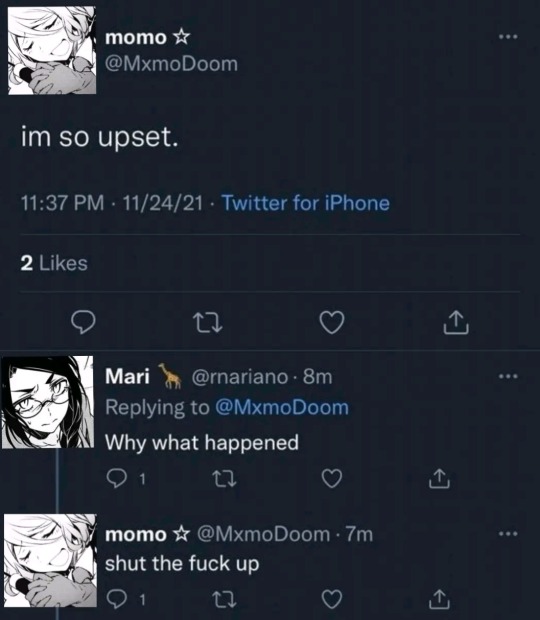



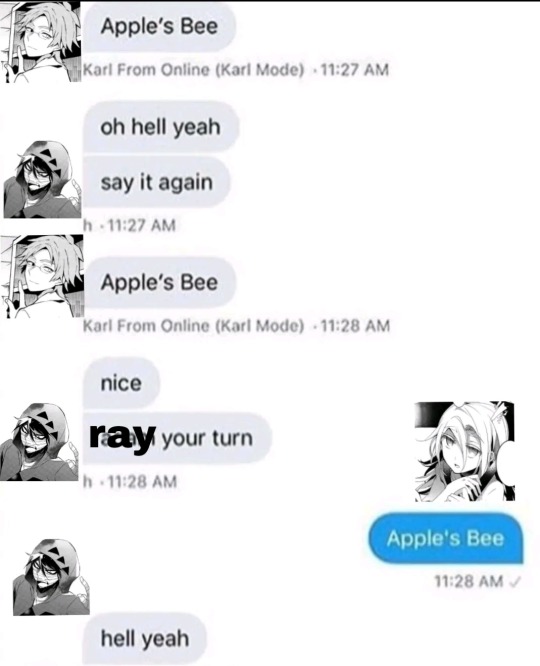


#cathy ward#aod#angels of death#satsuriku no tenshi#danny dickens#ray gardner#rachel gardner#eddie mason#lucy aod#cathy x lucy#cathylucy#zack foster#isaac foster#abraham gray#i cant stand these guys#gay ppl fr#fml bro#i posted these on tiktok first now they are here
145 notes
·
View notes
Text
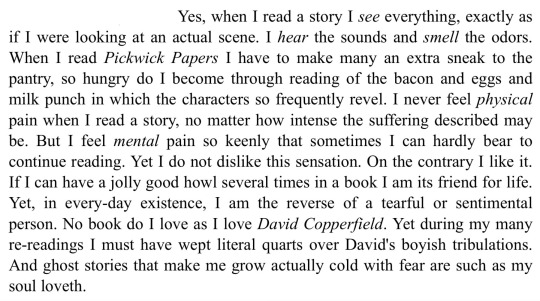
— Lucy Maud Montgomery
43 notes
·
View notes
Text
"I wanted family."
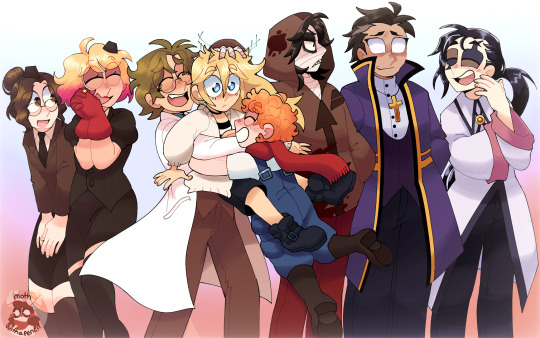




2 years ago today I impulse bought Angels of Death because I saw Danny Dickens on some kinnie flag Instagram account and my mad scientist loving brain latched onto him and wouldn't let go. And that game changed my life. It's a beautiful, emotional, layered game with deep and complex characters that have impacted me more than I can say. I'm really thankful AOD exists, and I wanted to make something big for my 2 years with it. And even though they're not in the game, I added Lucy and Shin to this piece because I love them so much <3
#moths art#angels of death#satsuriku no tenshi#satsuten#lucy aod#cathy ward#catherine ward#danny dickens#daniel dickens#ray gardner#rachel gardner#eddie mason#edward mason#zack foster#isaac foster#abraham gray#shin aod
305 notes
·
View notes
Text
ANGELS OF DEATH AS WHOSE LINE IS IT ANYWAYS SCREENCAPS

Gray:

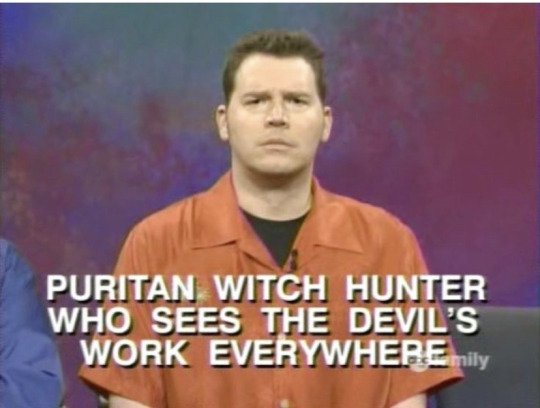


Cathy:



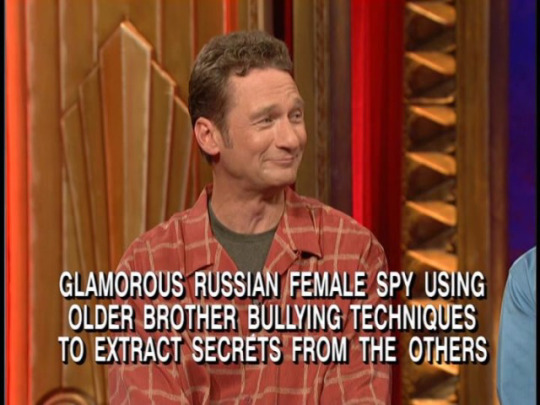
Danny:

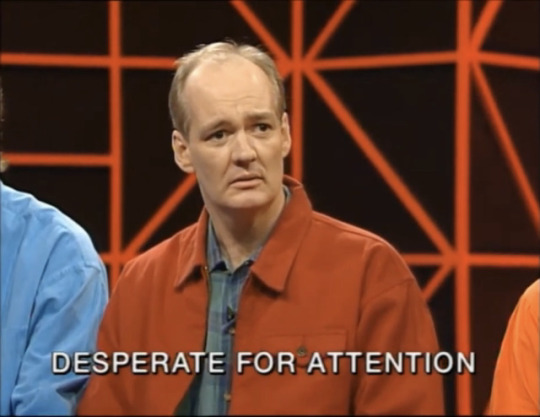


Eddie:
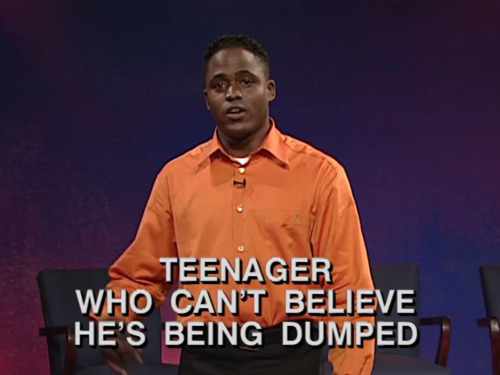
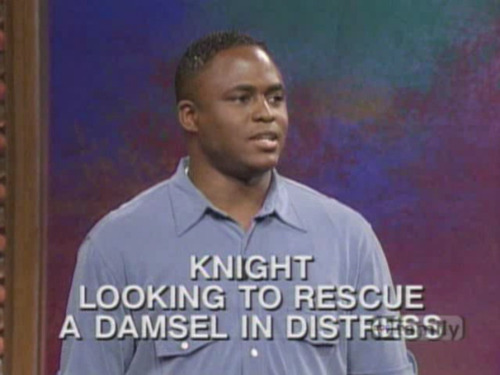
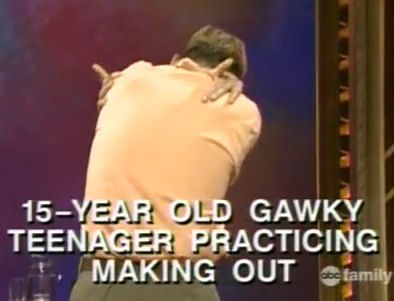

Zack:

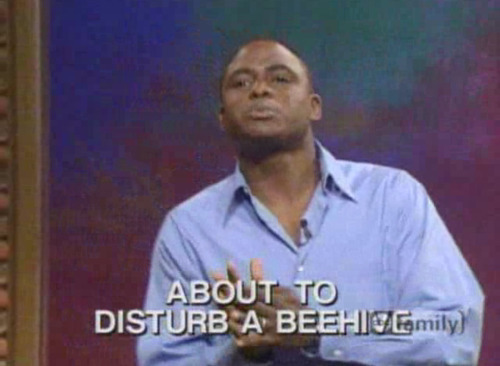

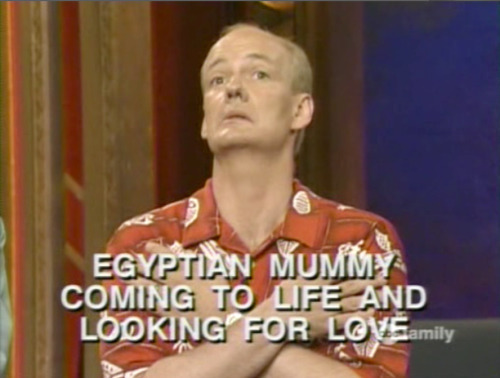
Rachel:

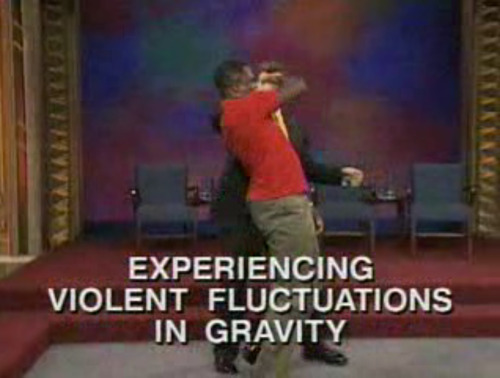


Lucy:

The bird:

(inspired by THIS post from marthmanx!)
#angels of death#satsuriku no tenshi#zack foster#rachel gardner#eddie mason#danny dickens#cathy ward#abraham gray#angels of death lucy#dont ask me how long it took me to find these. hhhhg.#whose line is it anyway
123 notes
·
View notes
Text

this is canon. source: satsuten yonkoma
#satsuten#satsuriku no tenshi memes#satsuriku no tenshi#angels of death memes#angels of death#rachel gardner#zack foster#cathy#danny dickens#eddy mason#abraham gray#or smth i dont remember#lucy satsuten#aod memes
72 notes
·
View notes
Note
For the character ask game: Cosette, 2 + 25 👀
Thanks for the ask, even though I'm answering it late! (For this ask meme)
#2. Favorite canon thing about this character?
My favorite canon thing about Cosette is the way she parallels Jean Valjean-- not just in their traumatic backstories, but also in the way they both often "perform" politeness and kindness. Cosette needs to perform happiness for Jean Valjean in order to convince him to take care of himself, and it's...deeply sad! She has to 'trick' him into not doing self-destructive things by framing it in cheerful lighthearted ways, papering over difficult problems with polite nothings, pretending not to be that frightened or upset, and it's...very sad. And it feels like something that he taught her.
The moments when she attempts to stop all the cheerfulness and talk to her father directly always tend to end with Jean Valjean breaking down-- like the moment when she asks "are you angry with me because I am happy?" or her attempts to ask directly about her mother, which both end with Jean Valjean shedding tears and avoiding her questions. There's something very realistic about that failure to communicate.
I don't know whether Hugo fully considered this a negative thing-- but I do think he understands the way that children often put on a great performance of happiness in order to help their parents.
Cosette is in many ways just Victor Hugo projecting his trauma over the death of his own young daughter onto Jean Valjean and Cosette's relationship, and like. As much as Cosette's writing is often deeply imperfect/ sexist, and as much as I think she should've been given more interiority and agency in the end of the story--- I think you can tell that Hugo did sincerely love his daughter? Cosette doesn't feel like a one-note cloying ingenue to me, but a fictionalized version of a real daughter Victor Hugo sincerely loved.
I also think that Child-Cosette in particular is written very well! Lots of authors struggle to write children, but Hugo really captures a lot of the way children think and speak-- young Cosette isn't a cloying innocent ingenue, she's a starving frightened angry child, and it makes her teenage self far more interesting as a contrast.
As a random addition: Hugo doesn't go into this, but it's fascinating how Cosette is extremely good at lying. She and Jean Valjean kind of share that talent. Very few people manage to trick Jean Valjean-- Marius fails utterly at pretending he's not in love with Cosette, and falls into all of his traps-- but Cosette manages to hide a secret love affair from him for a very long time. It's interesting how the two of them are very good at lying and concealing things from each other, and I don't fully know what to make of it.
Also my hot take is that anyone who thinks Cosette is a bland one-note ingenue should read Charles Dickens' A Tale of Two Cities, and contrast her with Lucie Manette. XD I used to be obsessed with A Tale of Two Cities, but it's basically just "what if Les Mis was bad and all the criticisms about it were actually true?" That novel also features a young ingenue who takes care of her traumatized ex-prisoner father-- but unlike Cosette, Lucie has no interiority or depth, and doesn't feel like anything resembling a real human young girl. All of the interesting things about Cosette- like her naivete/coming of age story, or the way her excessive bubbliness is often an act she puts on for her father's happiness, or her silly funny dialogue, or her own hard past that parallels her father's-- just aren't there.
Again, there are lots of places where I think Hugo's writing of Cosette fails; but there's also a lot of interesting details that are easy for people to explore and dig deeper into in fanworks.
25. What was your first impression of this character? How about now?
My first impression of this character was that she was Fine, but not very interesting? But the more I got invested in the novel and the fandom, the more I appreciated her as a character! Hugo's writing of her is deeply flawed, and she isn't given enough attention in the ending of the book specifically, but there's enough really compelling stuff there to be a great jumping off point for fanworks.
I think I already answered how I see her now in the previous question, but I want to add that I also like that she's nicknamed Madame LaNoir, or the Lady in Black. Goth Cosette is canon! That's very fun to me.
#les mis#it takes me a while to gather thoughts#but yay thanks!!#see like#you cant write a fanfic about lucie manette from a tale of two cities#because theres just like Nothing#theres nothing to build off#shes not even a character#while Cosettes writing is flawed theres still Stuff There#I say this as someone who read A Tale of two cities an ungodly amount of times during my Dickens phase
12 notes
·
View notes
Text
thinking about when I told my students that not everyone was a complex character, some people were just bumming their way through the hallways of life
#teaching tag#it was a great moment because i did the physical motion with it#and everyone laughed#anyway my point was. that you can have a character who's interesting internally (like sydney) because of conflicts and contradictions#and you can have a character like charles who is relatively straightforward on the inside who is forced to deal with circumstances#that create character by demanding interesting and specific choices of a character one way or another#(like charles darnay)#(i mean dickens doesn't totally get there with him but better)#anyway there's also Lucie and she has neither
22 notes
·
View notes
Text
"BLEAK HOUSE" (1985) Review
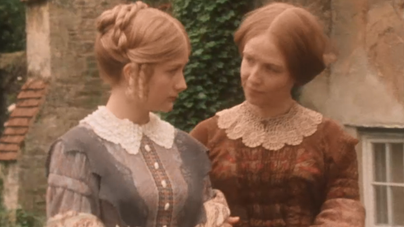
"BLEAK HOUSE" (1985) Review
In less than I year, I have developed this fascination with the works of Charles Dickens. How did this come about? I do not know. I have seen previous Dickens movie and television adaptations in the past. But ever since last year, I have been viewing these adaptations with a vengeance. And one of them turned out to be "BLEAK HOUSE", the 1985 adaptation of Dickens' 1852-53 novel.
Adapted by Arthur Hopcraft, this eight-episode miniseries conveyed the affects of Jarndyce v Jardyce, a long-running legal probate case involving the existence of more than one will. The heirs and their descendants have been waiting decades for the court to determine the legal will, for the sake of a large inheritance. Among those affected by the Jarndyce v Jardyce case are:
*John Jarndyce - a wealthy English landowner, who happens to be the proprietor of the estate, Bleak House. Jarndyce had inherited it from his uncle Tom Jarndyce, who had went mad waiting for a verdict on the case before committing suicide.
*Richard Carstones - Tom Jarndyce's grandson and John Jarndyce's cousin, who also became one of the latter's legal wards, and a potential beneficiary of the Jarndyce v Jardyce case.
*Ada Clare - Tom Jarndyce's granddaughter and Mr. Jarndyce's cousin, who also became one of his legal wards, and a potential beneficiary of the Jarndyce v Jardyce case. She and Richard, also cousins, became romantically involved.
*Esther Summerson - one of the novel's main characters and orphan, who became Mr. Jarndyce's ward following the death of her previous guardian, Miss Barbury, who had also been her biological aunt. She joined the Bleak House household as Ada's companion and Mr. Jarndyce's housekeeper after he became the guardian of Richard and Ada.
*Honoria, Lady Dedlock - the wife of baronet Sir Leicester Dedlock and a beneficiary of the Jarndyce v Jardyce case. She is also the younger sister of Miss Barbury and Esther's illegitimate mother.
*Captain John Hawdon aka Nemo - a former British Army officer, who became an impoverished law writer and drug addict. He is also Lady Dedlock's former lover and Esther's illegitimate father. His penmanship on one of the Jarndyce v Jardyce affidavit attracts Lady Dedlock's attention.
*Mr. Bill Tulkinghorn - Sir Leicester's ruthless lawyer, who noticed Lady Dedlock's reaction to the affidavit. This leads him to investigate her past and possible connection to Hawdon aka "Nemo".
*Miss Flite - An elderly woman living in London, whose family had been destroyed by a long-running Chancery case similar to Jarndyce v Jarndyce. This has led her to develop an obsessive fascination with Chancery cases, especially the main one featured in this story. She quickly befriended Esther, Richard, Ada and Mr. Jarndyce.
As one can see, these characters represented plot arcs that connect to the Jarndyce v Jarndyce case. As one of the beneficiaries of the Jarndyce case, Richard becomes obsessed with the verdict. He seemed more interested in depending upon the Jarndyce verdict to provide him with an income rather than pursue a profession. This obsession eventually led to a clash between and Mr. Jarndyce, who has tried to warn him not to get involved with the case. Another clash formed between Lady Dedlock and Mr. Tulkinghorn, due to his determination to find proof of her past with Nemo and the conception of their child. A clash that proved to create even more damaging for a good number of people, than the one between Mr. Jarndyce and Richard. In the midst of all this stood Esther, who served as an emotional blanket for several characters - especially the inhabitants at Bleak House, a potential romantic figure for three men (ironic for a woman who was not supposed to be a great beauty), and the center of the Lady Dedlock-Nemo scandal.
For years, 1985's "BLEAK HOUSE" had been viewed as the superior adaptation of Dickens' novel. The first novel aired back in 1959. But a third television adaptation that aired in 2005 had managed to overshadow this second adaptation's reputation. But this is not about comparing the three adaptations. I am focusing only the 1985 miniseries. If I might be blunt, I believe screenwriter Arthur Hopcraft and director Ross Devenish created one of the better Charles Dickens I have personally seen. Granted, one might use the source material - the 1952-53 novel - as the reason behind the miniseries' top quality. But I have seen my share of poor adaptations of excellent source material . . . and excellent adaptations of poor or mediocre novels and plays. And I would find this excuse too simply to swallow. Hopcraft and Devenish could have easily created a poor or mediocre adaptation of the novel. Fortunately, I believe they had managed to avoid the latter.
With eight episodes, Hopcraft and Devenish did an excellent job in conveying Dickens' exploration into the chaos of the legal landscape in 19th century Britain, especially cases involving the Chancery courts. One might consider the longevity of Jarndyce v Jarndyce rather exaggerated. However, I speak from personal experience that an extended length of time in such a case is more than possible. But what I thought the effect of Jarndyce v Jarndyce and similar cases in Dickens' story seemed very interesting. In Richard Carstone's case, I suspect his own hubris and upbringing had allowed the case to have such a toxic effect upon him. He had been raised as a gentleman. Which meant he was not expected to work for a living. But since he did not possess a fortune or an estate - like Mr. Jarndyce - Richard never lost hope that the court would rule the Jarndyce v Jarndyce case in his favor, allowing him to inherit a great deal of money. Although it took another case to send Miss Flyte mentally around the bend, I found it interesting that her obsession with Chancery cases led her to attach her interest to the Jarndyce case beneficiaries.
The Jarndyce case also produce a group of leeches in the forms of attorneys like Mr. Tulkinghorn and his obsession with assuming control over the Dedlocks and Mr. Vholes, who had sucked a great deal of money from Richard in exchange for his legal services. The series also featured the vicious moneylender Mr. Smallweed, who helped Mr. Tulkinghorn in the latter's campaign against Lady Dedlock; and Mr. Jarndyce's "friend", Harold Skimpole, who had not only encouraged Richard to pursue a greater interest in the Jarndyce case, but also had accepted a "commission" from Vholes to recruit the young man as a client. Would I regard William Guppy as a leech? Sometimes. I had noticed that one particular story arc was missing - namely the story arc regarding the philanthropist Mrs. Jellyby, her daughter and Esther's friend, Caddy and the Turveydrop family. This did not bother me, for I have never been a fan of that particular arc.
However, I also noticed that "BLEAK HOUSE" featured a few moments in which important plot points had been revealed through dialogue or shown after the fact. Audiences never saw Skimpole convince Richard to hire Mr. Vholes. Instead, Mr. Jarndyce had revealed this incident after it happened. The whole scenario regarding Dr. Allan Woodcock being a survivor of a shipwreck was handled as a past event revealed by the good doctor himself. Hopcraft's script never stretched it out in the same manner as Dickens' novel or the 2005 miniseries. Audiences never saw George Rouncewell's release from jail, for which he had been incarcerated for murder. Instead, Episode Seven began with George in jail and later, near the end, found him serving as Sir Leicester's valet without any information on how that came about.
"BLEAK HOUSE" featured a few other writing and direction decisions by Hopcraft and Devenish that I found . . . well, questionable. Why did the pair solely focused on Lady Dedlock in the series' penultimate episode and Richard and the Jarndyce v Jarndyce case in the final one? Would it have been so difficult for them to switch back and forth between the two arcs in those final episodes? I found Inspector Bucket's resolution to the story's murder mystery rather rushed. I would have liked to see Bucket eliminate suspects before solving the case. In Bucket's final scene with the killer, Hopcraft left out that moment from the novel when the latter had the last scathing word on British society, leaving the police detective speechless. This erasure dimmed the impact of Dickens' message and made the killer even more of a caricature. I had some issues with how Devenish directed certain performances. How can I put this? I found them a bit theatrical.
I have one last issue - namely Kenneth MacMillan's cinematography. I realize that in "BLEAK HOUSE", fog represented institutional oppression and human confusion and misery in society. Unfortunately, I feel that MacMillan may have been heavy-handed in utilizing this symbol in the series. It is bad enough that photography featured a fuzzy element that seemed popular in many period productions in the 1970s. But thanks to MacMillan's use of fog in the story, there were many moment in which I could barely see a damn thing. And I found that irritating.
Aside from a few quibbles, I had no real issues with the performances featured in "BLEAK HOUSE". One of those quibbles proved to be the performances for some of the secondary cast members. How can I say this? The exaggerated and wooden performances for some of the cast members brought back memories of some of the minor actors' bad performances in 1982 miniseries, "THE BLUE AND THE GRAY". I must admit that I did not care for Pamela Merrick's portrayal of Lady Dedlock's French maid, Madame Hortense. Her performance bordered and then surpassed the lines of caricature - as some British actors/actresses tend to do. Charlie Drake's portrayal of the moneylender Smallweed tend to waver between a pretty solid performance and pure caricature. Although there were moments when I found her portrayal of the eccentric Miss Flyte a bit hammy, I must admit that Sylvia Coleridge gave a well-done performance. Chris Pitt's performance as Jo, the crossing sweeper boy struck me as very poignant. Yet, at the same time, he seemed so passive that at times, I found it difficult to believe he had survived on the streets on his own, for so long. Jonathan Moore, whom I had remembered from the 1988 television movie, "JACK THE RIPPER"; did an excellent job of conveying the ambitious and self-interested nature of law clerk William Guppy. However, his portrayal of Guppy seemed to lack the character's comedic nature. Denholm Elliot gave a very interesting performance as Esther, Richard and Ada's guardian, John Jarndyce. On one level, I found his portrayal of the kind-hearted Mr. Jarndyce as first-rate. Excellent. But there were moments, including the character's famous quote following Jo's death, when Elliott's Mr. Jarndyce seemed to resemble one of those "angry young men" characters from a John Osbourne play. I found those moments very odd.
However, there were performances that did not leave me scratching my head. Colin Jeavons and Anne Reid gave very competent performances as the grasping solicitor Mr. Vholes and George Rouncewell's close friend Mrs. Bagnet, respectively. Ironically, Jeavons had portrayed Richard Carstone in the 1959 adaptation of "Bleak House" and Reid had portrayed Mrs. Rouncewell in the 2005 television adaptation. Both Suzanne Burden and Lucy Hornak gave solid performances as Esther Summerson and Ada Clare. And yet, both actresses managed to rise to the occasion with some brilliant moments. Burden's moment came, following Esther's realization that she had survived the smallpox. As for Hornak, she gave an excellent performance during Ada's soliloquy about her love's growing obsession with the Jarndyce case. Brian Deacon gave a passionate performance as Dr. Allan Woodcourt, the penniless doctor in love with Esther. Ian Hogg gave a very solid, yet commanding performance as Inspector Bucket. I really enjoyed Sam Kelly's warm portrayal of the law-stationer, Mr. Snagsby. Bernard Hepton gave one of the most colorful performances of his career as the alcoholic rag and bone shopkeeper, Krook. Dave King gave a very solid performance as the loyal, yet intimidating and conservative former Army sergeant George Rouncewell. I found George Sewell's performance as Sergeant Rouncewell's older brother, the wealthy Mr. Rouncewell not only entertaining, but very memorable. I thought Robin Bailey did an excellent job portrayed the haughty and proud Sir Leicester Dedlock.
But there were four performances that really impressed me. One came from Philip Franks, who did an excellent job of conveying Richard Carstone's emotional journey from John Jarndyce's warm and friendly young man, to the more embittered one, obsessed with the Jarndyce case. T.P. McKenna gave a delicious performance as Mr. Jarndyce's self-involved friend, Harold Skimpole, who proved to be quite the emotional (and financial) vampire. I thought Peter Vaughan was superb as the Dedlocks' sinister lawyer, Mr. Tulkinghorn. I was amazed by how Vaughn managed to combine the character's dedication to protecting his client Sir Leicester and his penchant for assuming control over others. If I had voted for the best performance featured in "BLEAK HOUSE", I would choose Diana Rigg's portrayal of the tragic Honoria, Lady Dedlock. I believe the actress gave a brilliant performance as the mysterious, yet complicated baronet's wife, whose cool demeanor hid a great deal of emotions and a personal secret. I am shocked and amazed that neither she, Vaughn, McKenna or Franks had ever received any accolades for their performances.
In fact, I am surprised that "BLEAK HOUSE" had only received BAFTA nominations (and won three) . . . and they were in the technical/arts category, aside for the Best Drama Series/Serial. No Primetime Emmy nominations, whatsoever. Was this eight-part miniseries the best adaptation of Charles Dickens' 1852-53 novel? I cannot answer that question. Granted, it had its flaws. But what television or movie production did not? But I cannot deny that "BLEAK HOUSE" was a first-rate miniseries that deserved more accolades than it had received, thanks to Arthur Hopcraft's screenplay, Ross Devenish's direction and an excellent cast led by Suzanne Burden, Denholm Elliott and Diana Rigg.
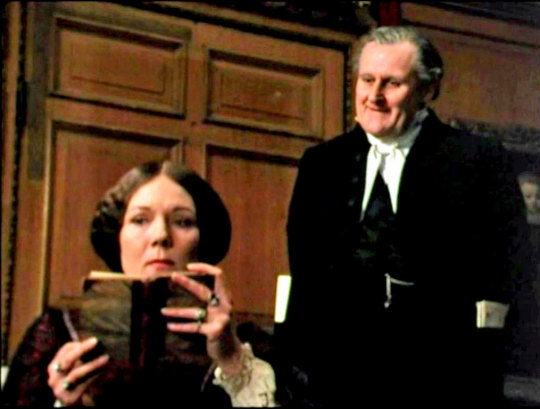
#charles dickens#bleak house#bleak house 1985#arthur hopcraft#ross devenish#suzanne burden#denholm elliott#diana rigg#peter vaughan#philip franks#lucy hornak#colin jeavons#anne reid#dave king#george sewell#robin bailey#brian deacon#chris pitt#sam kelly#ian hogg#jarndyce v. jarndyce#jonathan moore#pamela merrick#sylvia coleridge#charlie drake#bernard hepton#t.p. mckenna#victorian age#period drama#period dramas
4 notes
·
View notes

